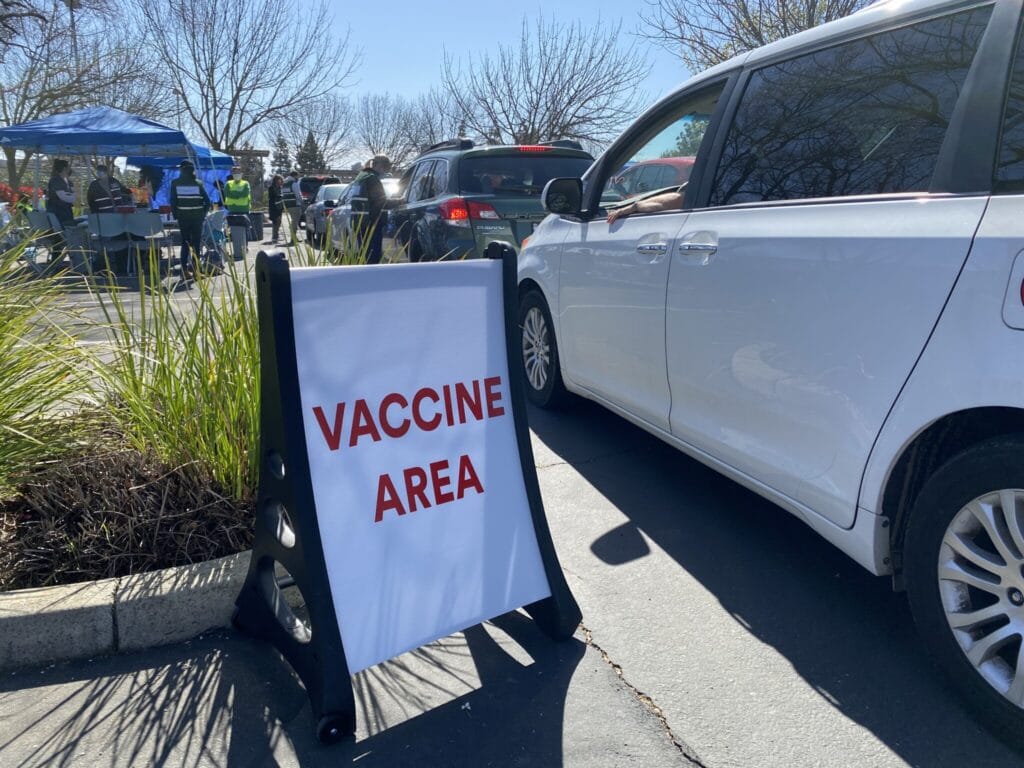
For 12 long months, foster parents have had to make wrenching decisions about how to keep vulnerable children connected to family, school and social services, all while avoiding the insidious spread of a virus that thrives in extended networks.
Now, California foster parents are getting some long-awaited relief in the form of priority eligibility for coronavirus vaccines. The most populous state appears to be leading the nation in offering vaccines to these caregivers: Across the country in New York, foster parents have yet to be prioritized, and there are few indications that they are being prioritized elsewhere.
“It’s unethical to ask foster parents to do in-person visitation and take in children with known or questionable exposure without including them in the eligibility,” said Jenn Rexroad, who leads the California Alliance of Caregivers. In too many parts of the country, she added: “We’re asking them to be a frontline worker, but without protection we’re offering other frontline workers.”
On Friday, the California Department of Public Health acknowledged that need, and announced that foster parents are eligible for vaccines under phase 1B of the state’s rollout plan. The announcement noted that foster care is “temporary and may be a revolving door of children staying and leaving needing care.”
The move comes roughly a month after the leaders of five statewide organizations in California sent a letter to the Department of Social Services — signed by dozens of foster care agencies — that urged the state to prioritize foster parents under the same category as those who provide in-home services to the elderly and disabled.
Rexroad said she has heard of three caregivers for foster youth who died after contracting COVID-19, including a Los Angeles foster father; he had recently taken in a young adult who later tested positive for the coronavirus.
If their caregivers get sick and die, advocates say, foster children who’ve already suffered loss and home disruption risk suffering even greater trauma. New York foster agency JCCA lost two foster parents to COVID-19, said CEO Ron Richter. In one case, the surviving parent was able to continue caring for the child, but in the other, the child had to be moved to yet another new foster home.
There are some signs outside of California that states are making vaccines available for foster parents. They are included in the second of two eligibility tiers opened in Minnesota last week, although given the limited supply of doses, the state’s health commissioner asked those in the latter tier to register for updates and wait to be contacted. In the Pacific Northwest, the Foster Parent Alliance of Washington State encouraged active foster parents ages 50 and older to identify themselves as “multigenerational households,” another currently eligible category.

Meanwhile, foster parents in Alaska have benefited from broader eligibility guidelines. The state’s tribal health consortium began offering vaccines to all Alaska Native adults in January, and last week, the state became the first to expand eligibility to everyone 16 and older. Mississippi followed that lead this week, while Texas, Ohio, West Virginia and Indiana have opened eligibility to people ages 50 and older.
But wider eligibility also means fiercer competition for a limited number of vaccine appointments.
Despite increasingly desperate requests by foster parent advocates and legislators, New York has yet to expand vaccine access to foster parents — even as the list of those eligible has grown to include child care workers, food pantry volunteers and hotel employees.
In a plea similar to the one in California, last month New York Assembly member Andrew Hevesi (D) urged Gov. Andrew Cuomo (D) to prioritize foster parents in a letter signed by more than a dozen lawmakers and 30 foster care agencies and advocacy groups. Hevesi noted that foster parents face similar exposure risks as caseworkers, who are considered essential workers and became eligible for vaccines months ago.
Leaders at the Adoptive and Foster Family Coalition of New York, one of the letter’s signatories, said they’ve heard from many foster parents who fear they could become infected while complying with court-ordered visitation with children’s parents or other relatives, who may not always follow precautions like masking and social distancing.
“To be a foster parent, you have to give up some control of your bubble of who you’re choosing to have risk with during this pandemic,” said Amy Drayer, a director at the Adoptive and Foster Family Coalition of New York. “People really don’t have the ability to make those decisions, which are life and death decisions at this point.”
Now, more than ever, the state can’t afford to lose willing foster parents. New York must soon comply with the Family First Prevention Services Act, which limits funding for children placed in group facilities rather than foster homes.
Advocates say helping foster parents secure life-saving vaccines would be a meaningful way to recognize their critical role caring for the neediest children, which often goes unnoticed by both policymakers and the public.
“It sends the message that we value you and you’re worthy of us protecting you because caring for the state’s most vulnerable children during a pandemic is so important,” said Claudia Corrigan D’Arcy, a director at the New York family coalition. “Instead, we’re saying, ‘Well, hopefully you can figure it out.’”
President Joe Biden has vowed to open vaccine eligibility to all American adults by May 1, giving foster parents some hope of getting their doses by summer. But that leaves many more months of risk and sacrifice.
“Children have been waiting throughout the pandemic to see their parents and find permanency, and a child’s time frame is very different from an adult’s,” Richter said. “We can’t wait anymore.”





